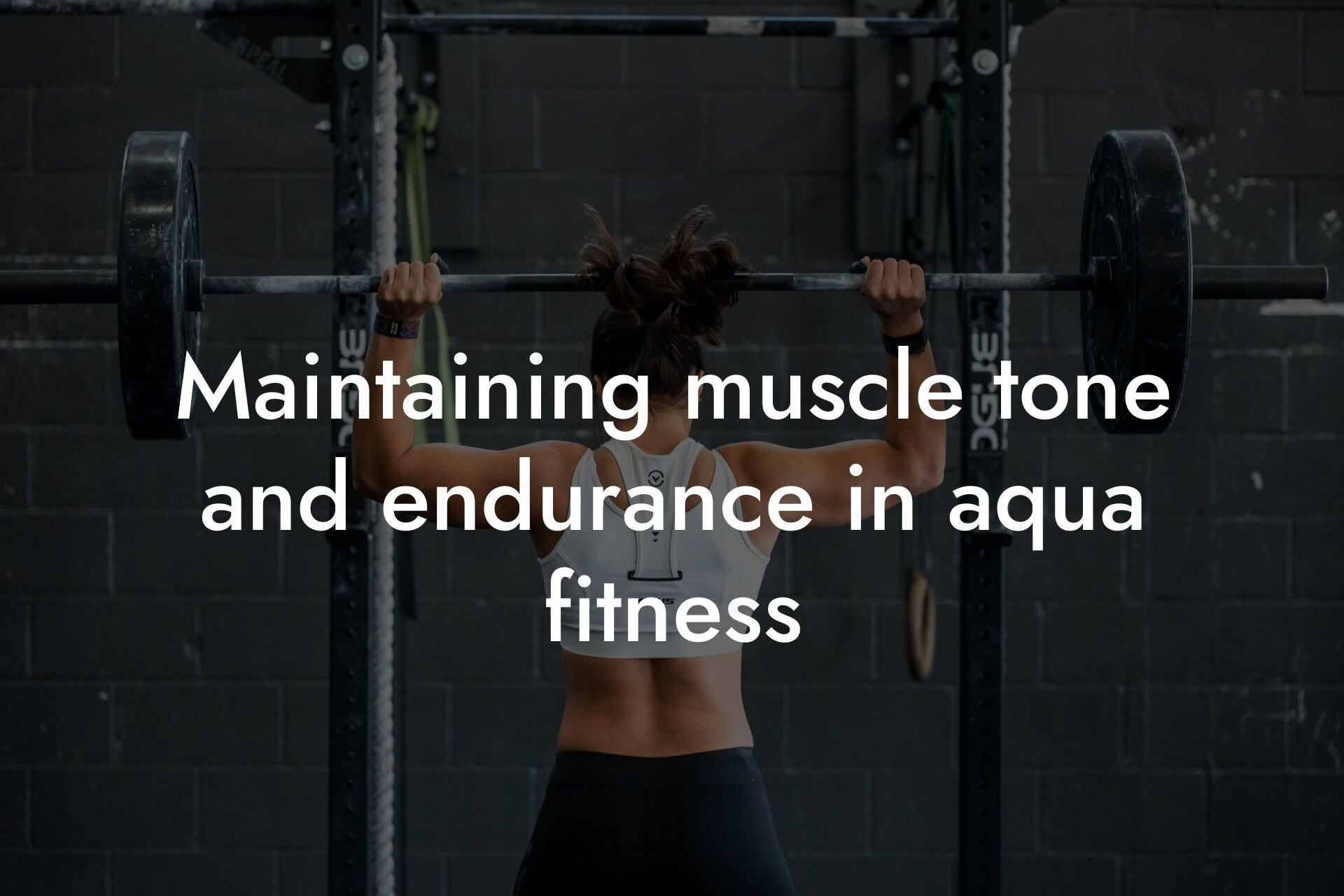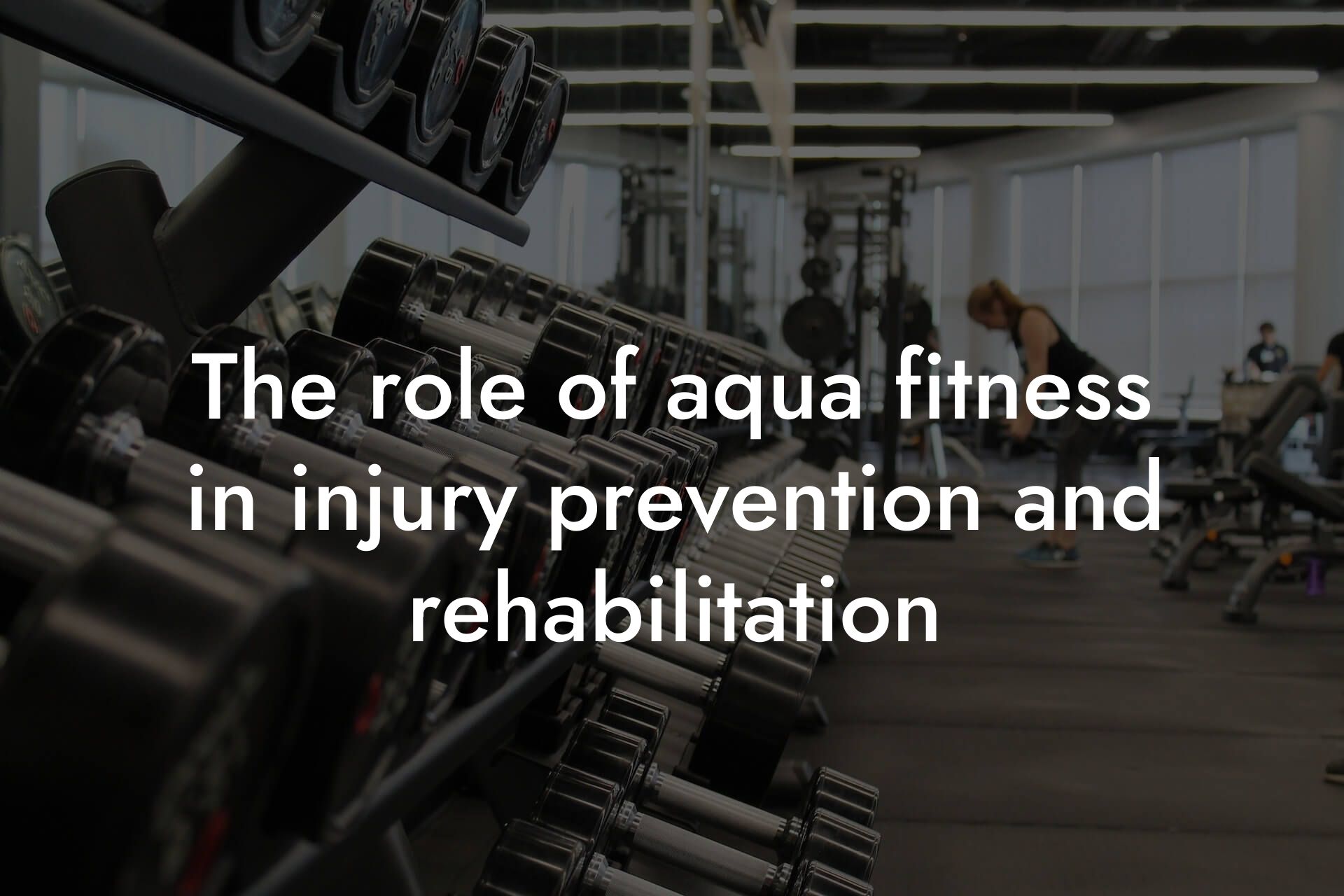As a high-earning professional, you understand the importance of maintaining a healthy and fit physique. Aqua fitness has become a popular choice for many, offering a low-impact, yet effective way to improve cardiovascular health, build strength, and boost flexibility. However, tracking progress can be challenging, especially when it comes to measuring body composition and bone density changes. This is where DEXA scans come in – a game-changing technology that provides a comprehensive assessment of your body's progress. In this article, we'll delve into the world of DEXA scans and explore how they can help you monitor your progress in aqua fitness.
Table of Contents
What is a DEXA Scan?
A DEXA (Dual-Energy X-ray Absorptiometry) scan is a non-invasive, pain-free medical imaging technique that measures bone density and body composition. It uses low-level X-rays to produce detailed images of your body's internal structure, providing valuable information about your bone health, muscle mass, fat distribution, and more. DEXA scans are commonly used to diagnose and monitor osteoporosis, but they also offer a wealth of information for fitness enthusiasts and athletes.
How Does a DEXA Scan Work?
The DEXA scan process is quick and easy, taking around 10-15 minutes to complete. You'll lie down on a comfortable table, and the scanner will pass over your body, emitting low-level X-rays. These X-rays are absorbed by your body in different ways, depending on the density of your bones and tissues. The scanner then uses this information to create a detailed image of your body composition, including:
- Bone density: A measure of your bone health, including density and mineral content.
- Lean mass: A measure of your muscle mass, including skeletal muscle and organs.
- Fat mass: A measure of your body fat, including visceral fat and subcutaneous fat.
- Body fat percentage: A calculation of your total body fat relative to your lean mass.
Why Use DEXA Scans for Aqua Fitness Progress Monitoring?
Aqua fitness is an excellent way to improve cardiovascular health, build strength, and boost flexibility. However, it can be challenging to measure progress, especially when it comes to changes in body composition and bone density. DEXA scans offer a unique solution, providing a comprehensive assessment of your body's progress in aqua fitness. With regular DEXA scans, you can:
- Track changes in body fat percentage and distribution.
- Monitor muscle growth and development.
- Assess bone density changes, ensuring you're building strong, healthy bones.
- Identify areas for improvement, tailoring your workout routine to achieve optimal results.
Benefits of DEXA Scans for Aqua Fitness Enthusiasts
DEXA scans offer a range of benefits for aqua fitness enthusiasts, including:
- Accurate tracking: DEXA scans provide a precise measurement of your body composition and bone density, helping you track progress and make informed decisions about your workout routine.
- Personalized training: With detailed information about your body composition and bone density, you can tailor your workout routine to address specific areas of improvement.
- Injury prevention: DEXA scans can help identify potential injury risks, such as low bone density or muscle imbalances, allowing you to take proactive steps to prevent injuries.
- Enhanced motivation: Seeing tangible results from your hard work can be a powerful motivator, helping you stay committed to your aqua fitness routine.
How Often Should You Get a DEXA Scan?
The frequency of DEXA scans depends on your individual goals and needs. If you're looking to track progress in aqua fitness, we recommend getting a DEXA scan every 6-12 weeks. This allows you to:
- Monitor changes in body composition and bone density over time.
- Adjust your workout routine based on the results.
- Stay motivated and focused on your fitness goals.
What to Expect from a DEXA Scan at Tano Performance Group
At Tano Performance Group, we're committed to providing high-earning professionals like you with the tools and information you need to achieve your fitness goals. Our state-of-the-art DEXA machine is operated by experienced technicians, ensuring you receive accurate and reliable results. During your scan, you can expect:
- A comfortable and relaxing experience.
- A comprehensive report outlining your body composition and bone density results.
- A personalized consultation to discuss your results and create a tailored fitness plan.
DEXA scans are a powerful tool for aqua fitness enthusiasts, providing a comprehensive assessment of body composition and bone density changes. By incorporating regular DEXA scans into your fitness routine, you can track progress, optimize your workout routine, and achieve your goals. At Tano Performance Group, we're dedicated to helping high-earning professionals like you unlock their full potential. Contact us today to schedule your DEXA scan and take the first step towards a stronger, healthier you.
Frequently Asked Questions
What is a DEXA scan, and how does it work?
A DEXA (Dual-Energy X-ray Absorptiometry) scan is a non-invasive, pain-free medical test that measures bone density and body composition. It uses low-level X-rays to produce images of the inside of the body, which are then analyzed to provide detailed information about bone density, lean mass, fat mass, and other health metrics. The scan takes about 10-15 minutes to complete, and the results are typically available within 24-48 hours.
Why is it important to monitor progress in aqua fitness?
Monitoring progress in aqua fitness is crucial to ensure that you're achieving your fitness goals, whether it's weight loss, improved body composition, or enhanced athletic performance. By tracking changes in body fat, lean mass, and bone density, you can adjust your workout routine, nutrition plan, and overall lifestyle to optimize your results.
How does aqua fitness impact bone density?
Aqua fitness, such as swimming and water aerobics, is a low-impact exercise that can help improve bone density, particularly in older adults or individuals with osteoporosis. The buoyancy of water reduces the impact on joints, making it an ideal exercise option for those with joint pain or mobility issues. Regular aqua fitness exercises can help increase bone density, reducing the risk of fractures and osteoporosis.
Can DEXA scans detect muscle imbalances?
Yes, DEXA scans can detect muscle imbalances by analyzing the distribution of lean mass throughout the body. This information can help identify areas of muscle weakness or imbalance, which can be addressed through targeted exercises and training programs.
How often should I get a DEXA scan to monitor progress?
The frequency of DEXA scans depends on your individual goals and fitness level. Generally, it's recommended to get a DEXA scan every 6-12 months to track changes in body composition and bone density. However, if you're making significant changes to your workout routine or nutrition plan, you may want to consider more frequent scans (every 3-6 months) to monitor progress and adjust your strategy as needed.
What is the difference between body fat percentage and body mass index (BMI)?
Body fat percentage measures the percentage of fat in your body, while BMI measures your weight in relation to your height. BMI is not always an accurate indicator of health, as it doesn't account for muscle mass or body composition. Body fat percentage, on the other hand, provides a more accurate picture of your overall health and fitness level.
How does aqua fitness impact body fat percentage?
Aqua fitness can help reduce body fat percentage by increasing caloric expenditure, improving cardiovascular health, and building lean muscle mass. Regular aqua fitness exercises can also improve insulin sensitivity, reducing the risk of chronic diseases like diabetes and heart disease.
Can DEXA scans detect visceral fat?
Yes, DEXA scans can detect visceral fat, which is the fat that accumulates around internal organs in the abdominal cavity. Visceral fat is a key indicator of metabolic health, and high levels have been linked to an increased risk of chronic diseases.
What is the ideal body fat percentage for men and women?
The ideal body fat percentage varies depending on age, sex, and fitness goals. Generally, for men, a body fat percentage of 8-19% is considered athletic, while 20-24% is considered fit. For women, a body fat percentage of 16-23% is considered athletic, while 24-30% is considered fit. However, these are general guidelines, and individual goals may vary.
How does bone density impact athletic performance?
Bone density plays a critical role in athletic performance, as it affects power, speed, and endurance. Stronger bones can withstand the physical demands of exercise, reducing the risk of injury and improving overall performance.
Can DEXA scans detect osteoporosis?
Yes, DEXA scans can detect osteoporosis by measuring bone density. A T-score of -2.5 or lower indicates osteoporosis, while a T-score between -1 and -2.5 indicates osteopenia (low bone mass).
What is the relationship between muscle mass and bone density?
Muscle mass and bone density are closely linked. As muscle mass increases, bone density also tends to increase, and vice versa. This is because muscles help to stimulate bone growth and density through mechanical stress and weight-bearing exercises.
How does aqua fitness impact muscle mass?
Aqua fitness can help build and maintain muscle mass, particularly in older adults or individuals with muscle atrophy. The resistance provided by water helps to engage muscles and improve strength, while the low-impact nature of aqua fitness reduces the risk of injury or muscle strain.
Can DEXA scans detect sarcopenia?
Yes, DEXA scans can detect sarcopenia, a condition characterized by age-related muscle loss. Sarcopenia is often accompanied by osteoporosis, and DEXA scans can help identify individuals at risk of both conditions.
What is the importance of tracking body composition?
Tracking body composition is essential for achieving fitness goals, improving overall health, and reducing the risk of chronic diseases. By monitoring changes in body fat, lean mass, and bone density, individuals can make informed decisions about their workout routine, nutrition plan, and lifestyle.
How does aqua fitness impact cardiovascular health?
Aqua fitness can help improve cardiovascular health by increasing cardiac output, reducing blood pressure, and enhancing vasodilation. Regular aqua fitness exercises can also improve lipid profiles, reducing the risk of heart disease.
Can DEXA scans detect changes in body composition over time?
Yes, DEXA scans can detect changes in body composition over time, providing valuable insights into the effectiveness of your workout routine and nutrition plan. By tracking changes in body fat, lean mass, and bone density, you can adjust your strategy to optimize your results.
What is the role of nutrition in aqua fitness?
Nutrition plays a critical role in aqua fitness, as it provides the energy and nutrients necessary for optimal performance. A balanced diet that includes lean protein, complex carbohydrates, and healthy fats can help support muscle growth, improve body composition, and enhance overall health.
How does aqua fitness impact mental health?
Aqua fitness can have a profound impact on mental health, reducing stress and anxiety, and improving mood and overall well-being. The relaxing nature of water-based exercises can also help reduce symptoms of depression and improve sleep quality.
Can DEXA scans be used for athletes?
Yes, DEXA scans can be used for athletes to track changes in body composition, bone density, and muscle mass. This information can help athletes optimize their training programs, improve performance, and reduce the risk of injury.
What is the cost of a DEXA scan?
The cost of a DEXA scan varies depending on the location, provider, and insurance coverage. On average, a DEXA scan can cost anywhere from $100 to $300. However, some insurance plans may cover the cost of a DEXA scan, so it's essential to check with your provider before scheduling a scan.
Is a DEXA scan safe?
Yes, DEXA scans are safe and non-invasive. The scan uses low-level X-rays, which are significantly lower than those used in traditional X-rays. The scan is also quick and painless, making it an ideal option for individuals of all ages and fitness levels.
Here are some related articles you might love...
- Maintaining muscle tone and endurance in aqua fitness
- Reducing body fat for better buoyancy and flexibility in aqua fitness
- The role of aqua fitness in injury prevention and rehabilitation
- Nutrition tips for sustained energy in aqua fitness classes
- Bone density and its role in aqua fitness performance
- How body composition impacts aqua fitness performance
- Balancing strength, flexibility, and cardiovascular health in aqua fitness
- Strength training tips to complement your aqua fitness routine
- Recovery techniques for aqua fitness practitioners
Zak Faulkner
Zak Faulkner is a leading authority in the realm of physical health and body composition analysis, with over 15 years of experience helping professionals optimise their fitness and well-being. As one the experts behind Tano Performance Group, Zak has dedicated his career to providing in-depth, science-backed insights that empower clients to elevate their physical performance and overall health.
With extensive knowledge of DEXA technology, Zak specializes in delivering comprehensive body assessments that offer precise data on body fat, muscle mass, bone density, and overall physique. His expertise enables individuals to make informed decisions and achieve their fitness goals with accuracy and confidence. Zak’s approach is rooted in a deep understanding of human physiology, combined with a passion for helping clients unlock their full potential through personalised strategies.
Over the years, Zak has earned a reputation for his commitment to excellence, precision, and client-focused service. His guidance is trusted by top professionals who demand the best when it comes to their health. Whether advising on fitness programs, nutritional strategies, or long-term wellness plans, Zak Faulkner’s insights are a valuable resource for anyone serious about taking their health and fitness to the next level.
At Tano Performance Group, Zak continues to lead our Content Team revolutionising how professionals approach their physical health, offering unparalleled expertise that drives real results.




